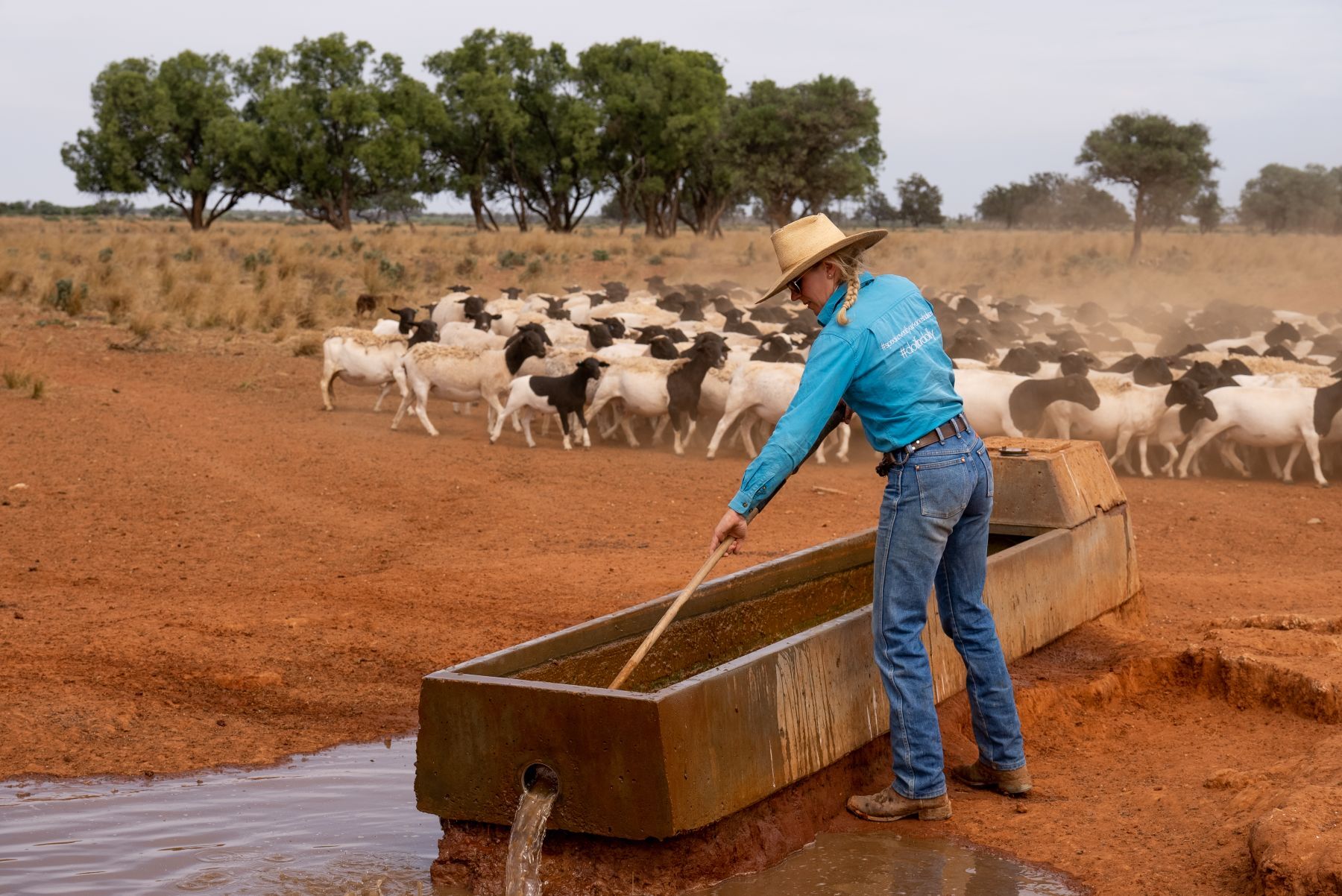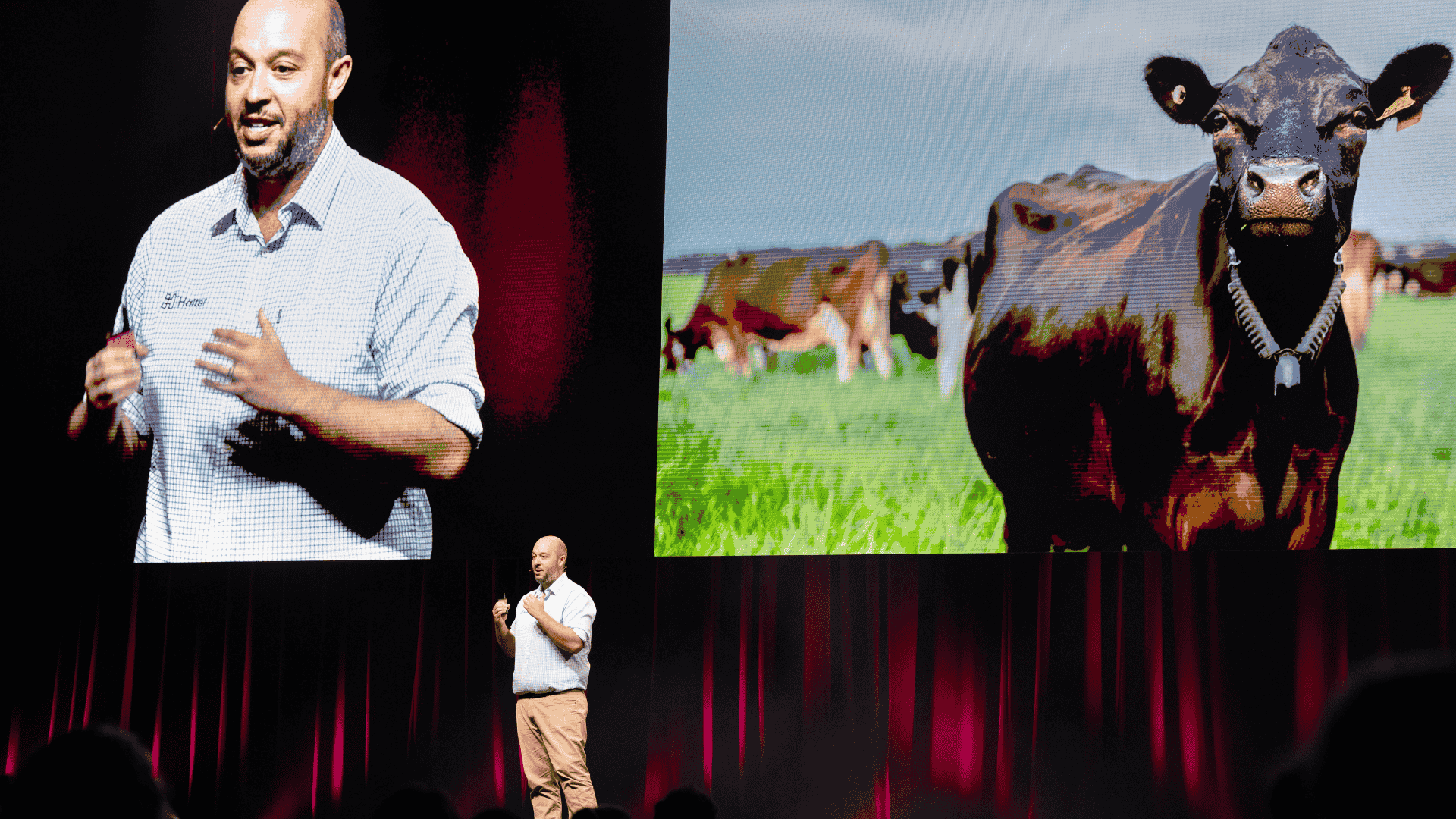Virtual fencing gets green light at ag tech event
Virtual fencing has been given the green light in Victoria, with Halter’s P5 electronic collar system on Wednesday becoming the first technology...

Resentment is like a dormant weed seed sitting under the soil. Quiet. Unnoticed. Waiting for the right conditions to sprout, spread, and, if we let it, take over.
“Why is it always all on me?”
“Must be nice to only worry about what’s happening in the paddock while I juggle everything else.”
“Does anyone else even care?”
“Look at them over the hill with their new boomspray—no drought in that country.”
Any of the above sound familiar?
As we move into seeding time (or planting, depending on where you are), a season full of pressure, stress, and expectations, resentment tends to rear its head more often.
READ MORE: May highly likely to be drier than average for much of the country
In her book Atlas of the Heart, social worker and researcher Brené Brown describes resentment as:
“...the feeling of frustration, judgment, anger, ‘better than,’ and/or hidden envy related to perceived unfairness or injustice. It’s an emotion we often experience when we fail to set boundaries or ask for what we need, or when expectations let us down because they were based on things we can’t control—like what other people think, what they feel, or how they’re going to react.”
Sound familiar?
Resentment can show up as sarcastic snaps at your partner or family. It might be the stories you replay in your head — what’s unfair, what’s frustrating you, or how others seem “better off”.
It serves a protective function — it’s often a reaction to feeling mistreated or overwhelmed by circumstances. Like all emotions, it’s shaped by our perceptions, even when we’re not fully aware of them.
While resentment doesn’t always have a single cause, it’s often triggered by experiences such as:
Feeling inadequate, unheard, or overlooked
Holding unrealistic expectations of yourself, others, or your situation
Feeling taken for granted
Interactions that undermine your confidence or authority
Like a weed, it might pop up and be easy to pull out if you catch it early. But if you ignore it, or let it grow unchecked, it can become deeply rooted — harder to manage and much more damaging.
Resentment often appears alongside other difficult emotions like anger, frustration, bitterness, or sadness. If you find yourself reacting strongly to the same people or situations over and over again, or feeling a persistent sense of injustice or tension, resentment may be quietly brewing.
Trying to suppress or ignore these feelings might seem like a practical short-term solution. But just like weeds, they grow when left unattended — and often thrive in silence.
Start with noticing. Pay attention to what’s going on for you. When painful emotions show up, don’t push them away. Instead, approach them with gentle curiosity:
What does it feel like in your body?
What thoughts are playing on repeat?
What was happening just before the emotion showed up?
Acknowledge the emotion—even if it’s uncomfortable. You might say to yourself: “Anyone would feel this way right now.”
Resentment is like an iceberg — or a weed with a long, complex root system. If you only clip off the top, it’ll keep growing back.
Ask yourself:
Are there unrealistic expectations on me—or from me—that aren’t achievable right now?
Are there boundaries that need reinforcing but have fallen away under pressure?
Is there envy creeping in—am I longing for something I don’t currently have?
If resentment is growing, chances are you're carrying a heavy load. Acknowledge the weight of what you’re dealing with, and give yourself permission to feel tired, frustrated, or stretched. You don’t have to do it all alone.
Instead of letting resentment explode in the heat of the moment, try reaching out—talk to a friend, or have a calm, honest conversation with your partner about how you’re really feeling.
And just like you’d call in an agronomist for a weed outbreak you can’t manage on your own, it’s OK to ask for help when emotions start spreading out of control. A psychologist, counsellor, or peer support worker can give you the tools and support to work through it.
Start by booking in with your GP for a Mental Health Care Plan. Or if you need more immediate support, here are some helpful contacts:
TIACS (free counselling support) – 0488 846 988
Regional Access (South Australia) – 1300 032 186
Lifeline – 13 11 14
Steph Schmidt is a clinical psychologist, farmer, wife and mum of three young boys who is based on farm at Worlds End, South Australia. Sign up for her Little Rocks Reminders, weekly emails with tips to stay on track www.stephschmidt.com.au/littlerocks
If this article has raised issues for you or you need to talk to someone there are excellent resources available. Visit this page for details about where you can find support.

Virtual fencing has been given the green light in Victoria, with Halter’s P5 electronic collar system on Wednesday becoming the first technology...
.png)
What if the real issue with “kids not stepping up” isn’t them at all?In this episode, Ben Law sits down again with high-performance advisor Chris...
.png)
As Victorians begin the long recovery following devastating bushfires which burnt more than 400,000 hectares, a pair of contract...